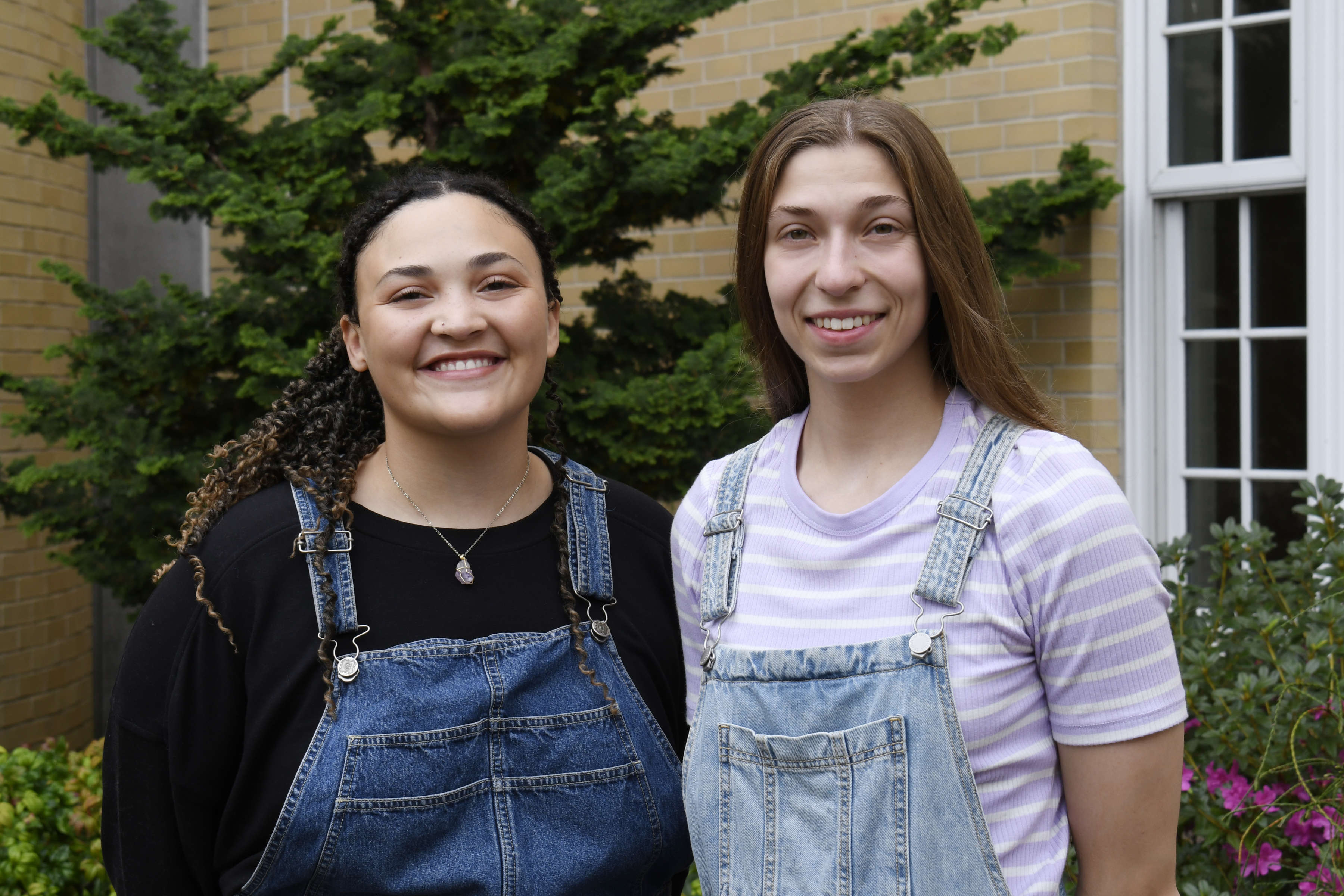ISSUED: 28 November 2022
MEDIA CONTACT: Dana Costa
SHEPHERDSTOWN, WV — Two Shepherd University science majors acquired real-life research skills during the summer of 2022 through the National Science Foundation’s Research Experiences for Undergraduate (REU) program. Mikhaela Ferguson, a biology major from Martinsburg, and Victoria Nicholes, an environmental studies major from North Huntington, Pennsylvania, spent 10 weeks working on research projects at two sites.
 Pictured (l. to r.) are Mikhaela Ferguson and Victoria Nicholes
Pictured (l. to r.) are Mikhaela Ferguson and Victoria Nicholes
Ferguson’s summer experience took place at Rocky Mountain Biological Laboratory, a field station in Gothic, Colorado, doing research in a lab that looks at plant pollinator networks.
“I looked at nectar traits within wildflowers,” she said. “We had microcapillary tubes, which are glass straws, and we would put them into the flowers and sample the nectar out of them. We would then look at the volume and read the nectar for sugar concentration, with the insinuation being that higher sugar means higher pollinator visitation.”
Ferguson, who hopes to go into ecology research, enjoyed working at the lab.
“It was beautiful being able to dig around in flowers all day in the mountains,” she said. “It was amazing. I’m very happy that I chose to go there.”
Nicholes spent her summer at Michigan State University’s W.K. Kellogg Biological Station in Hickory Corners, Michigan. Her research involves Arabidopsis thaliana, also called wall cress and mouse-ear cress, a small flowering plant native to Europe, Asia, and Africa. Arabidopsis is used in research because it is small, fast-growing, and easy to map genetically.
“I grew 128 Arabidopsis thaliana in two growth chambers. One simulated a current climate in Sweden, and one simulated a future climate in Sweden,” Nicholes said.
“We tested different single leaf traits in drought conditions to determine how well they could adapt to future climate change,” she said. “I looked at whether they are still able to figure out how to use water differently or how to change their leaf dynamics to survive and not just shrivel up and be sad and not grow anymore.”
Nicholes, whose goal is to earn a Ph.D. and become a researcher, has continued working with the W.K. Kellogg Biological Station lab throughout the fall because, during her 10 weeks in Michigan, she collected more data than she could analyze.
“I absolutely loved doing it,” she said. “I loved the immersive environment. I loved that everybody around me was just as much of a nerd as I am. My passion is plants. I love plants, so I absolutely loved spending every day with my little plants.”
Both Ferguson and Nicholes said they found participating in the REU program valuable beyond getting to work on research projects.
“I am very grateful for the Rocky Mountain Biological Laboratory. They really took care of me and made the experience really good,” Ferguson said. “We had guided hikes throughout the summer, and we had all sorts of workshops that were for professional development and some just for fun.”
“I think I left there a little bit of a different person,” Nicholes said. “I think it’s interesting to go to different places and be with different people because you learn how broad the world is. It really grows you a lot in ways that you wouldn’t have expected and in ways that are super beneficial.”
— 30 —
